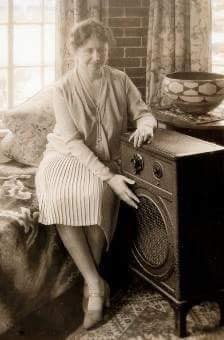JUNE 10, 2022 – (Cont.) And I hadn’t gotten to Beethoven yet. I found a YouTube recording of his Ninth performed by the Berlin Phil, Herbert Von Karajan conducting. I went straight to the fourth movement featuring Schiller’s Ode to Joy and let it rip. If the alien had the equivalent of socks, surely this musical masterpiece would knock them off.
I listened intently to the piece for the gazillionth time since my first memory of our dear ol’ dad standing in our living room and “conducting” the “Hi-Fi.” Its familiar strains had the same effect on my spirits that I imagine a weekly worship service has on the soul of a devout believer. As the orchestra swelled in its repetition of the famous, crowning theme, my choice of “best stuff” was roundly affirmed.
The only problem—still—was that the alien wasn’t shedding its figurative socks, at least within the power of my senses to notice. I felt the pang of failure as the movement drew to its dramatic climax.
In the tradition of human resilience, however, I picked up my ego, dusted it off, and took another tilt at the windmill.
“What do you think of our Titan, our Beethoven?”
“A most impressive arrangement of sound waves.”
Sound waves! The damn alien was obsessed with sound waves! Yes—sound waves. Just then an idea struck, and it involved the alien’s fixation with an element of physics.
“Recently,” I said, “a friend shared a letter written by Helen Keller. She was a famous person who’d gone totally deaf and blind when she was 19 months old—most likely from scarlet fever or meningitis. She became renowned because of her inspirational determination to overcome extreme disabilities. After ‘listening’ to a 1924 radio broadcast of the New York Philharmonic performing Beethoven’s Ninth, she wrote a letter to the members of the orchestra. You’ve got to hear what she wrote, because on multiple levels, it embodies our ‘best stuff.’ Here goes:
Dear Friends:
I have the joy of being able to tell you that, though deaf and blind, I spent a glorious hour last night listening over the radio to Beethoven’s “Ninth Symphony.” I do not mean to say that I “heard” the music in the sense that other people heard it; and I do not know whether I can make you understand how it was possible for me to derive pleasure from the symphony. It was a great surprise to myself. I had been reading in my magazine for the blind of the happiness that the radio was bringing to the sightless everywhere. I was delighted to know that the blind had gained a new source of enjoyment; but I did not dream that I could have any part in their joy. Last night, when the family was listening to your wonderful rendering of the immortal symphony someone suggested that I put my hand on the receiver and see if I could get any of the vibrations. He unscrewed the cap, and I lightly touched the sensitive diaphragm. What was my amazement to discover that I could feel, not only the vibration, but also the impassioned rhythm, the throb and the urge of the music! The intertwined and intermingling vibrations from different instruments enchanted me. I could actually distinguish the cornets, the roil of the drums, deep-toned violas and violins singing in exquisite unison. How the lovely speech of the violins flowed and plowed over the deepest tones of the other instruments! When the human voices leaped up thrilling from the surge of harmony, I recognized them instantly as voices more ecstatic, upcurving swift and flame-like, until my heart almost stood still. The women’s voices seemed an embodiment of all the angelic voices rushing in a harmonious flood of beautiful and inspiring sound. The great chorus throbbed against my fingers with poignant pause and flow. Then all the instruments and voices together burst forth – an ocean of heavenly vibration – and died away like winds when the atom is spent, ending in a delicate shower of sweet notes.
Of course this was not “hearing,” but I do know that the tones and harmonies conveyed to me moods of great beauty and majesty. I also sense, or thought I did, the tender sounds of nature that sing into my hand-swaying reeds and winds and the murmur of streams. I have never been so enraptured before by a multitude of tone-vibrations.
As I listened, with darkness and melody, shadow and sound filling all the room, I could not help remembering that the great composer who poured forth such a flood of sweetness into the world was deaf like myself. I marveled at the power of his quenchless spirit by which out of his pain he wrought such joy for others – and there I sat, feeling with my hand the magnificent symphony which broke like a sea upon the silent shores of his soul and mine.
The Auricle, Vol. II, No. 6, March 1924. American Foundation for the Blind, Helen Keller Archives.
As I finished reading, I realized that what the alien thought about our “best stuff” no longer mattered to me. Our “best stuff,” it turns out, is our indomitable spirit when inspired by the beatific, intellectual, and above all, the emotional genius of a Bach or a Beethoven. So what if that was beyond the comprehension of the alien?
Yet, at just that moment, I noticed what appeared to be a droplet of fluid slide down one of the alien’s filaments until it reached a sag in the line. There the globule stopped to gather itself before separating from the filament and landing softly upon the glass tabletop.
(Remember to subscribe to this blog and receive notifications of new posts by email.)
© 2022 by Eric Nilsson
